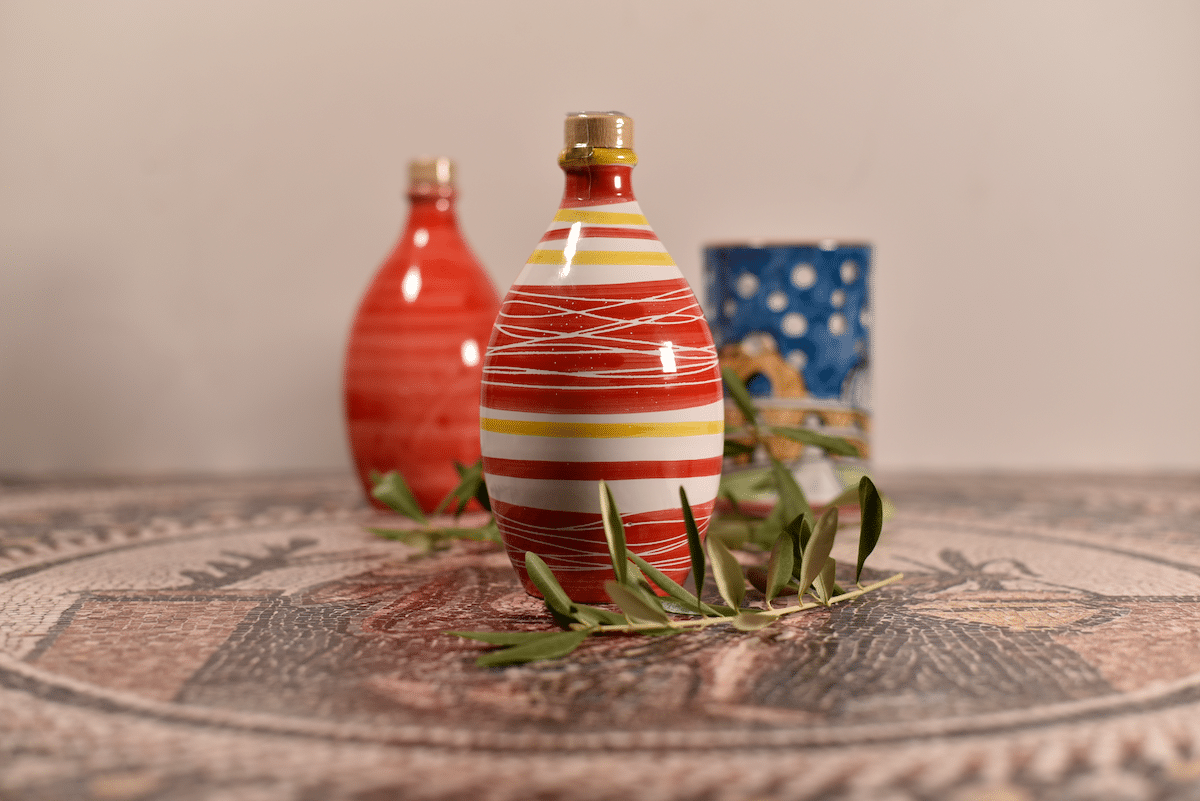Table of Contents
When you use olive oil for your salad dressings and as an ingredient in other preparations, you probably know that, besides its deliciousness, it’s also a healthy choice. Still, do you know what virgin olive oil can precisely do for you?
In this article, we’ll explore how healthy virgin olive oil is, the difference between it and regular olive oil, and much more.
Container Is Key
When shopping for olive oil, you can find it inside a ceramic olive oil bottle, glass, tin, and plastic bottles. Besides looking nicer, is there any difference between plastic containers and buying Italian olive oil in ceramic bottle.
As it turns out, if you keep edible olive oil in a ceramic bottle, you ensure the quality of the oil for a much longer period. While other materials are also suitable, the same can’t be said for plastic bottles.
Unfortunately, some additives used in manufacturing plastic bottles to provide stability are known to migrate into foods. What’s worse, this problem is even more pronounced when in contact with fatty food and at high temperatures. Do you know what is fatty
and can be produced at high temperatures? Regular olive oil!
Regular Vs Virgin
It’s not enough to buy Italian olive oil in ceramic bottle. You also need to understand the difference between regular and virgin oil. In short, regular oil is heated and filtered as part of its manufacturing process, whereas virgin oil is unrefined and cold-pressed.
This process maintains the original characteristics of the oil better, including its health benefits. Bear in mind each oil has distinctive effects on your health, so below you’ll find the specifics for olive oil.
Health Benefits
When considering the proper processing and storing, this “super oil” is rich with benefits for your health, and here are some of the highlights.
A top anti-inflammatory
Thanks to oleic acid, a powerful antioxidant found in olive oil, this food is a good reducer of the C-reactive protein, which plays a significant role as an inflammation marker.
Additionally, the substance oleocanthal found in olive oil is believed to have the same properties as ibuprofen.
Filled with mono-unsaturated fat
The predominant fats in olive oil are mono-unsaturated ones. This is good because these fats resist heat more. Compared to poly-unsaturated fatty acids like linoleic, found in other oils, oleic acid is 50 times less likely to oxidize.
This is important because oxidizing creates free radicals, which are known to be harmful.
Likely to help with chronic diseases
Olive oil has at least 30 polyphenols, such as oleocanthal. Together with vitamin E, these chemicals are believed to protect against heart diseases and cancer.
Improves insulin sensitivity
If body fat is an issue for you, you’d be happy to know olive oil can help. A mono-unsaturated-rich diet apparently prevents the accumulation of central body fat. It seems to do so by improving insulin sensitivity.
Keeps blood pressure in check
Some studies indicate that the Mediterranean diet, of which olive oil is a significant ingredient, correlates to improvements in blood pressure. Apparently, it’s thanks to polyphenols in olive oil which relax the blood vessels.
Helps manage cholesterol
Another benefit of olive oil is that it may improve cholesterol levels. Again, this is thanks to its polyphenols and oleic acid, which reduces oxidative damage.


